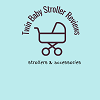The thick yellowish fluid that comes out of a mother’s breasts a few days after giving birth, called “colostrum”, serves as a child’s perfect first food. Colostrum has high concentrations of nutrients and antibodies that a newborn needs to develop properly and resist infection.
Colostrum is low in fat as newborn babies have difficulty digesting it.
Colostrum serves as the baby’s first immunization. It contains large numbers of immunoglobulin that help protect the mucous membranes in the throat, lungs, and intestines of the infant from germs. Leukocytes are also present to protect against harmful viruses. Colostrum also has beneficial bacteria that line the digestive tract to ward off infection.
Premature babies can take advantage of colostrum’s special components, called growth modulators, that help premature baby’s digestive system to adjust to oral rather than tube feedings.
Colostrum also has a mild laxative effect that encourages the passing of the baby’s first stool. This allows clearing of excess blood waste product from their system and prevents jaundice, the yellowing of the skin that is common among newborns.
To ensure that your baby receives the benefits of colostrum, you should initiate breastfeeding in the first hour of birth. The sucking reflex of your baby, which is strongest also in the first hour, establishes proper latching and encourages the production of milk.
After a few days, your colostrum changes to mature milk. The milk volume increases to meet the growing demands of the baby. Only after a week, your newborn’s stomach has increased to accommodate an ounce or the size of a ping pong ball. While the concentration of antibodies in the milk decreases, the disease-fighting properties of human milk remain as long as breastfeeding continues. With continued breastfeeding of up to two years, the baby will receive health benefits and immunological protection against many different viruses and bacteria.


0 Comments